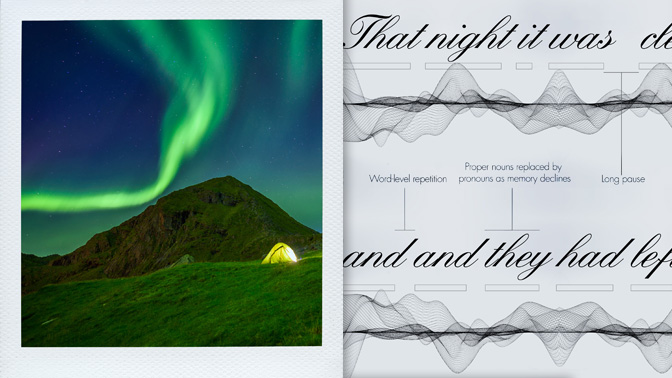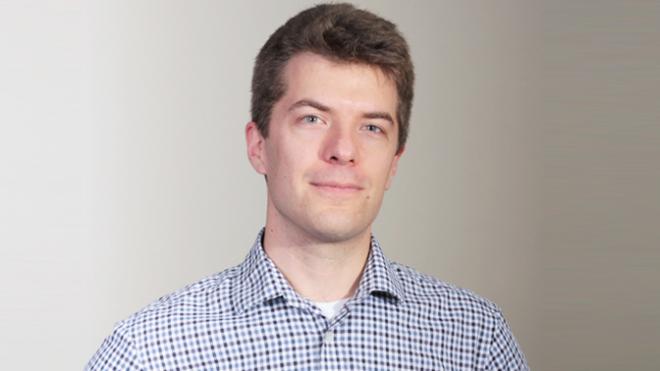
How you speak says a lot about you. A hurried voice can show that you are in a rush, while the tone of your voice can reveal emotion and mood.
How you speak can also uncover deeper truths: it can provide insight into your mental health. For example, speech can be used to diagnose aphasia, a disorder caused by brain damage that compromises an individual’s ability to speak, write or understand language.
“While speech analysis represents a powerful approach to diagnose certain disorders, this method typically relies on tedious ‘paper-and-pencil’ tests that are time consuming and costly to administer and interpret,” says Dr. Frank Rudzicz.
To address the shortcomings of traditional speech-based tests, Dr. Rudzicz’s team has combined subtle differences in speech patterns with the power of artificial intelligence (AI) to create a clinical tool that can quickly diagnose Alzheimer disease.
Alzheimer disease progressively damages the brain, impairing memory. Although memory loss is the most definitive symptom, speech may be a more sensitive indicator of brain function: not only do speech deficits appear early in the disease, but they also worsen as it progresses.
As a first step toward developing the new clinical tool, the research team identified the most prevalent speech deficits in Alzheimer disease. They did this by analyzing brief speech samples from 264 participants (167 with Alzheimer disease and 97 without).
WinterLight’s platform could help doctors make accurate diagnoses faster.”
-Dr. Frank Rudzicz
For each audio sample, 370 features of speech were examined, such as vocabulary richness, vowel articulation and pauses between words. Next, the researchers used this data to teach an AI algorithm how to identify Alzheimer disease. The resulting speech-based diagnostic program was able to detect the disease with an accuracy of more than 80%. Not only is the new program just as accurate as traditional assessment methods, but it is faster, cheaper and more sensitive.
Dr. Rudzicz incorporated these findings into a set of assessment tools that can detect a variety of disorders including aphasia and types of dementia. This platform can also be used to monitor disease progression and the effectiveness of new treatments.
To bring this technology to market, Dr. Rudzicz co-founded the spin-off company WinterLight Labs. The result: an online app that is accessible and easy to use. From the comfort of their own home, patients can upload a short voice recording describing what they see in an image—such as a picture taken during a camping trip. Within seconds, the speech sample is analyzed to generate a set of scores describing speech deficits and mental function, which are then interpreted by clinicians.

Fraser KC, et al. J Alzheimers Dis. 2016;49(2):407-22. Supported by the Natural Sciences and Engineering Research Council of Canada, the Alzheimer’s Association, the Alzheimer Society of Canada, the National Institutes of Health and Toronto Rehab Foundation.




